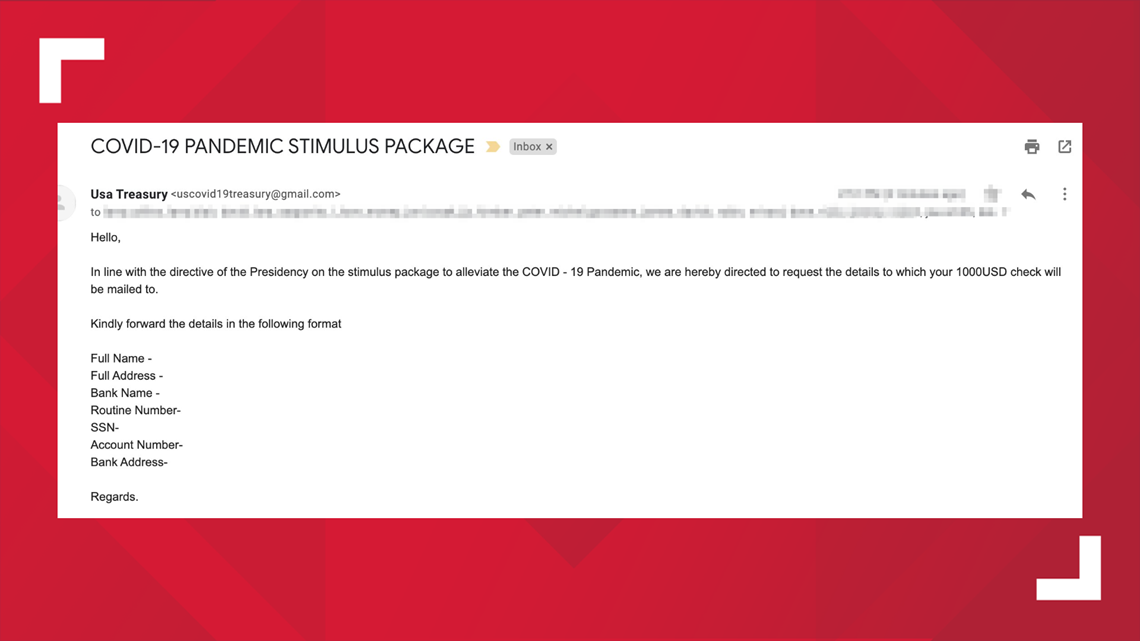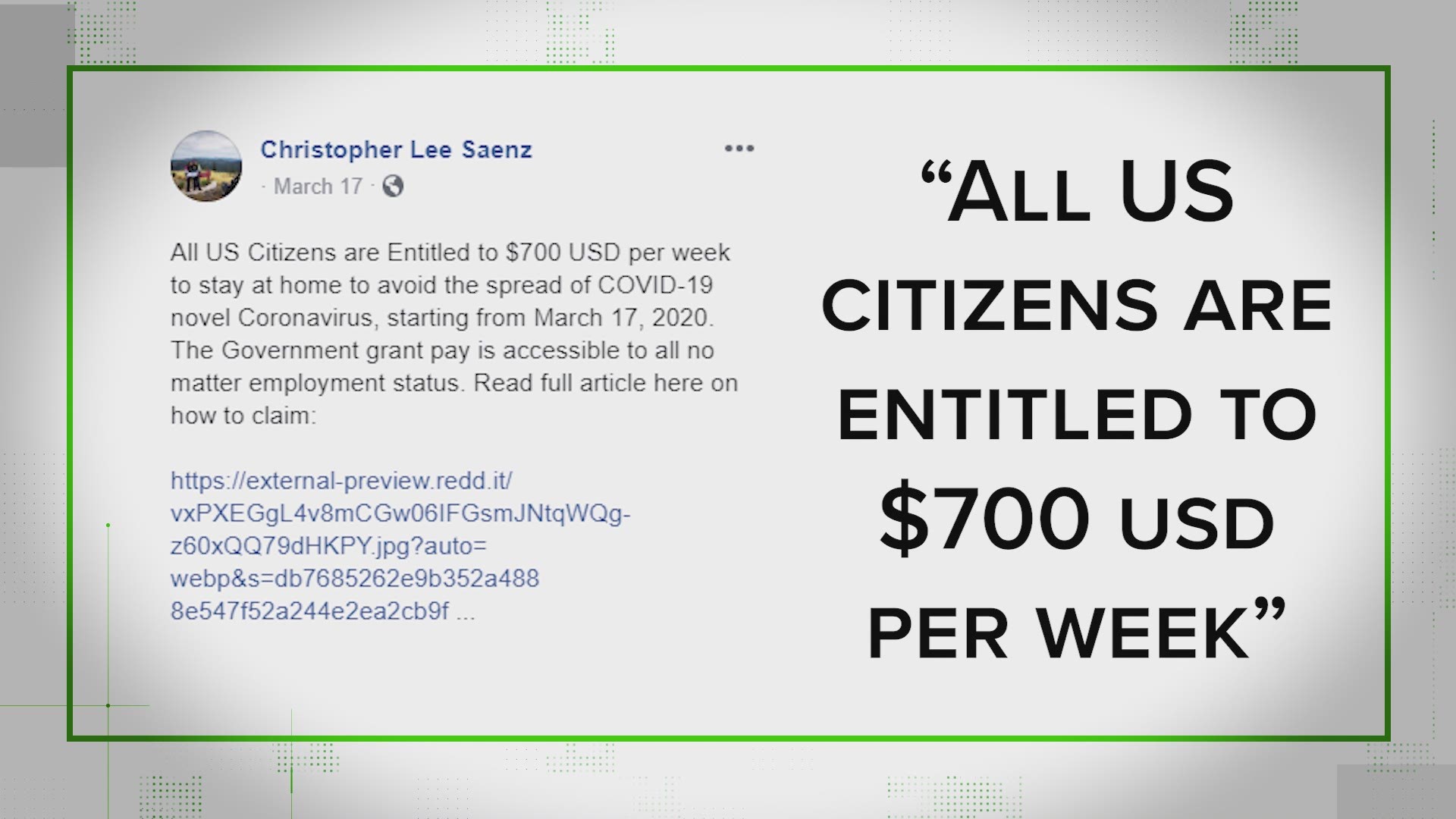WASHINGTON —
While the specifics of a virus relief plan are still being worked out by Congress, scammers aren’t waiting around. Some are jumping at the chance to try and take advantage of the situation.
While the details of the federal coronavirus economic rescue plan are still being worked out, the Federal Trade Commission, a consumer protection agency, is trying to get ahead of potential scams.
Email from the 'UsaTreasury'
An email is going around claiming to be from the U.S. Department of the Treasury.
“In line with the directive of the President,” it reads, “we are hereby directed to request the details to which your 1000USD check will be mailed to.”
It then asks for the recipients to share their names, address, bank name, “routine number” as well as their Social Security number and bank account.
There are some obvious red flags here that show it is false.


First off, the U.S. Department of the Treasury will not use a Gmail account to send requests to citizens.
The agency also wouldn’t send these requests, period.
There’s also the misspelling of “routing number.” Finally, the fact that the stimulus package hasn’t officially begun yet is a major red flag.
Facebook Post with link to get $700
This post was definitely intended to be a joke, but it seems like many people didn’t actually click the link before sharing it.


The post says: “All US citizens are entitled to $700 USD per week to stay at home to avoid the spread of COVID-19 novel coronavirus, starting from March 17, 2020.”
When someone clicks on the link in the post, it takes them to a photo of a gorilla giving the middle finger.
This message has been flagged by Facebook as false or misleading content.
What the Federal Trade Commission will never do
Since Congress has not approved a coronavirus relief plan, it’s difficult to know exactly how people will be contacted and what they will need to do.
- The government will not ask you to pay anything upfront to get this money. No fees. No charges. No nothing.
- The government will not call to ask for your Social Security number, bank account, or credit card number. Anyone who does is a scammer.
- These reports of checks aren’t yet a reality. Anyone who tells you they can get you the money now is a scammer.
It is an unfortunate reality that there will be more scams and that they will likely become more devious in how they try to trick people.
These guidelines from the FTC are a great way of analyzing whether something is legitimate or not.
If someone finds a potential scam and needs it verified, send it our way!

